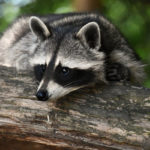Yes, raccoons can emit a noticeable smell, particularly if they are living in or near your property.
Have you ever caught a whiff of something funky and wondered if a raccoon was the culprit? You’re not alone. Raccoons are curious creatures, often making themselves at home in our attics, garages, and backyards. But with their presence comes a distinct and sometimes overpowering odor that can leave you wondering what’s causing it.
In this article, we’ll dive into the world of raccoon odors, exploring what they smell like, why they might smell, and what you can do about it. Whether you’ve noticed an unusual scent wafting through your property or are simply curious about these masked bandits, we’ve got you covered.
Key Takeaways
- Raccoons can emit a noticeable musky odor, especially when nesting.
- Diet and habitat significantly influence raccoon smells.
- Identifying raccoon odors can help in managing and preventing infestations.
- Professional help may be required for severe odor issues.
Why Do Raccoons Smell?
Raccoons might look cute and harmless, but their smell can be anything but! There are several reasons behind the distinct odor these creatures can emit.
First off, raccoons have a natural musky scent that’s part of their unique biology. This musky smell is generally mild but becomes more pronounced when raccoons are in close quarters, like in your attic or garage.
Diet plays a significant role in how raccoons smell. These omnivores aren’t picky eaters—they’ll munch on anything from fruits and insects to garbage and pet food. A varied and sometimes unsanitary diet can lead to a stronger, less pleasant odor. Imagine the combination of rotting food and animal waste; not exactly a fragrant bouquet!
Their habitat also influences their smell. When raccoons make nests, they often use a variety of materials, including leaves, twigs, and even insulation from your home. Over time, these materials can become damp and moldy, contributing to the overall odor.
Certain situations can intensify raccoon odors. For example, a raccoon that has been ill or injured may emit a stronger smell. Additionally, if a raccoon dies in or near your home, the decomposition process will produce an unmistakable and extremely unpleasant odor.

Identifying Raccoon Odors
So, you’ve noticed a mysterious smell around your property, and you’re starting to suspect raccoons might be the culprits. But how can you be sure? Identifying raccoon odors can be tricky, but with a bit of know-how, you can pinpoint the source.
Raccoon odors are often described as musky and somewhat sweet but not in a pleasant way. When raccoons nest in an area, the smell can become stronger, especially if there are multiple animals. You might also notice the smell of urine or feces, which can add a sharp, ammonia-like edge to the overall scent.
It’s useful to compare raccoon smells to those of other common wildlife to rule out other possibilities. For instance, skunks are famous for their pungent, almost eye-watering spray, which is distinctly different from the musky odor of raccoons. Rodents, on the other hand, often leave a musty, stale smell that lacks the sweetness of raccoon musk.
Beyond the smell, look for other signs of raccoon presence to confirm your suspicions. Raccoon tracks are a giveaway—they have five toes and look somewhat like tiny human handprints. You might also find droppings, which are typically dark and tubular, or evidence of their nocturnal activities, such as overturned garbage cans or disturbed pet food bowls.
Identifying raccoon odors isn’t just about recognizing the smell—it’s about looking for the whole picture. If you catch a whiff of something musky and start noticing other signs, chances are you’ve got some uninvited furry guests making themselves at home.
Preventing Raccoon Infestations
To keep your home smelling fresh and raccoon-free, prevention is key. Here are some practical tips to prevent raccoon infestations and avoid the odors they bring.
Secure Trash Cans and Food Sources
Raccoons are notorious scavengers, always on the lookout for an easy meal. Secure your trash cans with tight-fitting lids or consider using raccoon-proof bins. If possible, store trash cans in a garage or shed. Make sure any outdoor pet food is brought inside overnight, and bird feeders are kept out of reach.
Seal Entry Points
Inspect your home for potential entry points. Raccoons can squeeze through surprisingly small gaps, so be thorough. Seal holes in your attic, crawl spaces, and basement. Check for gaps around vents, pipes, and chimneys, and use materials like steel mesh or hardware cloth to cover these openings. Regularly inspect your roof for loose shingles or other damage that could allow raccoons access.
Regular Property Maintenance
Keeping your property well-maintained can deter raccoons from making it their home. Trim tree branches that hang over your roof to prevent easy access. Keep your yard free of debris and overgrown vegetation, which can provide hiding spots for raccoons. Regularly clean up fallen fruits or nuts from trees, and secure compost bins to minimize attractive food sources.
Implement Deterrents
Consider using deterrents to keep raccoons at bay. Motion-activated lights or sprinklers can startle raccoons and make your property less appealing. Commercial raccoon repellents, such as those with predator urine or strong scents like ammonia, can also be effective when applied around potential entry points and areas where raccoons have been active.
By following these preventive measures, you can significantly reduce the risk of raccoon infestations and the unpleasant odors that come with them. A little effort in securing your property now can save you from dealing with smelly and disruptive raccoon guests in the future.
Raccoon Odor Myths Debunked
When it comes to raccoon odors, there are a few myths floating around that can lead to misunderstandings and ineffective solutions. Let’s debunk some of these common misconceptions.
Myth: Raccoons Smell Like Skunks
One of the most persistent myths is that raccoons smell like skunks. While both animals can produce strong odors, they are quite different. Skunks are famous for their potent, eye-watering spray, which is used as a defense mechanism. Raccoons, on the other hand, have a musky scent that is usually less intense but can become more noticeable when they nest or mark their territory. Don’t confuse the two—if you’re dealing with a skunk, you’ll know!
Myth: Only Sick Raccoons Smell
Another myth is that only sick raccoons emit a strong odor. While it’s true that illness can exacerbate a raccoon’s smell, healthy raccoons can also produce noticeable odors, especially if they are nesting or have a diet that contributes to stronger scents. It’s important to address the presence of raccoons regardless of their health status to prevent odor issues.
Myth: Raccoon Smell Is Easy to Get Rid Of
Some people believe that getting rid of raccoon odors is a simple task. Unfortunately, this isn’t always the case. Raccoon smells can be persistent, especially if the animals have been living in your home for a while. Their nesting materials, droppings, and urine can seep into insulation, wood, and other porous materials, making the smell difficult to eliminate without thorough cleaning and sometimes professional help.
Myth: Raccoons Only Smell During Certain Seasons
Lastly, there’s a misconception that raccoons only smell during specific times of the year, such as mating season or when they are preparing for winter. While certain behaviors like nesting can intensify their odor, raccoons can emit smells year-round. If you notice a persistent odor, it’s worth investigating regardless of the season.
By debunking these myths, we hope to provide a clearer understanding of raccoon odors and how to manage them effectively. Knowing the truth can help you take the right steps to address and prevent raccoon-related smells on your property.
Conclusion
Dealing with the unmistakable odor of raccoons can be a real headache, but understanding why these smells occur and knowing how to tackle them can make a world of difference. Raccoons can emit a variety of scents, from a musky, sweet smell to the sharp ammonia-like odor of their urine. These smells can be particularly intense if raccoons have made a nest in or around your home.
To manage these odors, start with immediate actions like cleaning and ventilating the area. For long-term solutions, consider trapping and relocating the raccoons, and make sure to seal any entry points to prevent them from coming back. Sometimes, professional help is the best option, especially when dealing with severe odor issues or if the infestation is extensive.
Preventing raccoon infestations in the first place is your best bet. Secure your trash cans, seal entry points, and maintain your property to make it less inviting for these nocturnal visitors. Using deterrents can also help keep raccoons at bay.
Don’t let raccoon myths mislead you—understand the facts about their odors and take informed steps to manage and prevent them. By staying proactive and vigilant, you can keep your home raccoon-free and smelling fresh.
If you’re struggling with raccoon odors or need professional assistance, don’t hesitate to reach out to a wildlife removal service. They have the expertise and tools to handle raccoon problems effectively, ensuring your home stays safe and odor-free.













